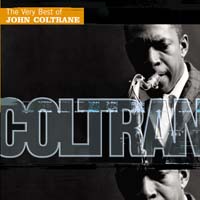2024-05-07
The Musical Genius of Craig Armstrong: The Highs and Lows
Are you a fan of Craig Armstrong? If so, then you’re in for a treat. We all know that when it comes to music, there are bound to be both good things and bad things about any artist—and when it comes to dissecting the musical genius of Craig Armstrong, we’ll be looking at both his lowlights and highlights. So get ready for some hilarious insight into the ups and downs that come with being a Craig Armstrong enthusiast!
For those of us who love music, it’s hard not to appreciate the work of Craig Armstrong. He’s a renowned Scottish composer, musician, and orchestrator, whose work has been featured in internationally acclaimed films, including Moulin Rouge, The Great Gatsby, and The Incredible Hulk, among others. His music is characterized by the use of lush and evocative orchestration, as well as his ability to fuse disparate musical styles to create something unique and memorable. But like all artists, Armstrong’s success hasn’t been without its low points. In this blog post, we’re going to take a closer look at the highs and lows of Armstrong’s musical career.
First, let’s talk about Armstrong’s highlights. One of his most notable achievements was his work on the score for Baz Luhrmann’s blockbuster hit, Moulin Rouge. Armstrong’s compositions added a vital element of whimsy and emotional depth to Luhrmann’s frenzied, visually stunning film. His song, “Come What May,” which he co-wrote with David Baerwald, became an instant classic and was nominated for a Golden Globe Award. Armstrong’s work on Moulin Rouge earned him a Grammy Award for Best Score Soundtrack for Visual Media.
Armstrong’s work on The Great Gatsby was another highlight of his career. The score for the film includes original compositions by Armstrong, as well as song covers featuring some of today’s most popular artists. The combination of jazz and modern music helped to evoke the feel of the roaring 20s, and the lush orchestration complemented the opulence of the film’s decadent setting.
But Armstrong’s career hasn’t been without its struggles. One of his lower points came with his 2001 album, As If to Nothing. Despite receiving generally positive reviews from critics, the album failed to gain significant attention from audiences. This could be attributed to the fact that the album wasn’t tied to any particular film or project, which may have lessened its appeal.
Another low point came with Armstrong’s work on the score for the 2011 film, The Oranges. While the score itself wasn’t necessarily bad, it was overshadowed by the film’s lack of success. The film didn’t receive positive reviews, which likely contributed to the score’s relative obscurity.
In conclusion, Craig Armstrong is a musical genius whose work has had both highs and lows. His ability to create captivating and memorable music has earned him accolades and critical acclaim, but he’s also experienced moments of artistic struggle and commercial failure. However, even in his lower moments, Armstrong’s musical talent has never been in question. As we continue to enjoy the work of this Scottish composer and orchestrator, we can take comfort in the knowledge that even the most accomplished artists experience their fair share of ups and downs.
For those of us who love music, it’s hard not to appreciate the work of Craig Armstrong. He’s a renowned Scottish composer, musician, and orchestrator, whose work has been featured in internationally acclaimed films, including Moulin Rouge, The Great Gatsby, and The Incredible Hulk, among others. His music is characterized by the use of lush and evocative orchestration, as well as his ability to fuse disparate musical styles to create something unique and memorable. But like all artists, Armstrong’s success hasn’t been without its low points. In this blog post, we’re going to take a closer look at the highs and lows of Armstrong’s musical career.
First, let’s talk about Armstrong’s highlights. One of his most notable achievements was his work on the score for Baz Luhrmann’s blockbuster hit, Moulin Rouge. Armstrong’s compositions added a vital element of whimsy and emotional depth to Luhrmann’s frenzied, visually stunning film. His song, “Come What May,” which he co-wrote with David Baerwald, became an instant classic and was nominated for a Golden Globe Award. Armstrong’s work on Moulin Rouge earned him a Grammy Award for Best Score Soundtrack for Visual Media.
Armstrong’s work on The Great Gatsby was another highlight of his career. The score for the film includes original compositions by Armstrong, as well as song covers featuring some of today’s most popular artists. The combination of jazz and modern music helped to evoke the feel of the roaring 20s, and the lush orchestration complemented the opulence of the film’s decadent setting.
But Armstrong’s career hasn’t been without its struggles. One of his lower points came with his 2001 album, As If to Nothing. Despite receiving generally positive reviews from critics, the album failed to gain significant attention from audiences. This could be attributed to the fact that the album wasn’t tied to any particular film or project, which may have lessened its appeal.
Another low point came with Armstrong’s work on the score for the 2011 film, The Oranges. While the score itself wasn’t necessarily bad, it was overshadowed by the film’s lack of success. The film didn’t receive positive reviews, which likely contributed to the score’s relative obscurity.
In conclusion, Craig Armstrong is a musical genius whose work has had both highs and lows. His ability to create captivating and memorable music has earned him accolades and critical acclaim, but he’s also experienced moments of artistic struggle and commercial failure. However, even in his lower moments, Armstrong’s musical talent has never been in question. As we continue to enjoy the work of this Scottish composer and orchestrator, we can take comfort in the knowledge that even the most accomplished artists experience their fair share of ups and downs.
Tag: Craig Armstrong, music artist, best songs, artist career
2022-11-01
The Musical Biography of Lesbians On Ecstasy: Their Groundbreaking Sound and Iconic Discography
Over the years, the music industry has seen many LGBTQ+ artists break barriers and change the game for what's considered commercially viable music. One of those artists is the iconic Canadian electronic music band, Lesbians On Ecstasy...read more
2022-11-01
Poppy: From Dawn to Fame, Biography of a Musical Genius
Poppy, whose real name is Moriah Rose Pereira, is a rising American singer, songwriter, and actress. She made her debut in 2014 and has since grown to become a significant influence in the music industry...read more
2022-01-01
The Rudimental Controversy: Innovative Dance Music or Lacking Lyrical Nuance?
For music aficionados all around the world, when they think of Rudimental and their unique brand of innovative dance music, there are a variety of opinions that come to mind. Some may argue that many of their songs lack lyrical nuance and complexity – particularly in comparison to the likes of other influential artists...read more
2025-01-13
The Continuing Debate Over Gerry & The Holograms' Legacy
Gerry & the Holograms have been a staple in the music industry since the 1970's, and their unique blend of rock n' roll has earned them legions of fans around the world. Yet despite their significant contributions to popular culture, they also have quite a few critics who challenge their artistic direction and constantly question whether or not they can be taken seriously as a band...read more
2022-11-01
Exploring the Musical Biography of John Coltrane: The Father of Modern Jazz
If you are a jazz lover, then you must have heard the name John Coltrane, who is often referred to as the father of modern jazz. He is considered one of the most influential saxophonists in the history of jazz music, and his style has inspired countless musicians around the world...read more
SUGGESTED PLAYLISTS








